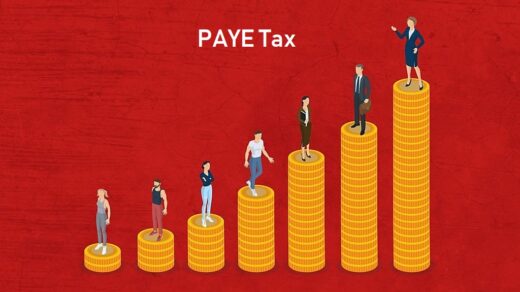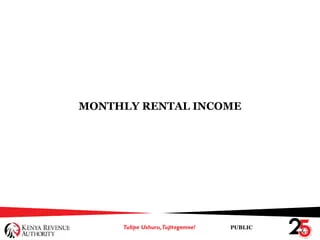Capital Gains Tax (CGT) is a taxation mechanism imposed on gains that arise from the transfer of property in Kenya. This tax is applicable to individuals, companies, or partnerships and is designed to capture the profits made from the sale or disposal of property.
This article provides an in-depth overview of CGT, including its scope, rates, computation, allowable expenses, exemptions, and the process of payment.
Scope of Capital Gains Tax
- Property in Kenya: Gains accruing from the transfer of property situated in Kenya, acquired on or before January 1, 2015, are subject to CGT.
- Shares in Foreign Entities: Effective July 1, 2023, CGT extends to gains arising from the sale of shares or comparable interests in foreign entities deriving more than 20% of their value directly or indirectly from immovable property in Kenya.
- Non-Resident Shareholders: CGT applies when a non-resident holding more than 20% of the share capital of a Kenyan company directly or indirectly disposes of their interest, starting July 1, 203.
Rate of Tax
The CGT rate is fixed at 15% of the net gain, making it a final tax. Net gain is calculated as the sales proceeds minus the acquisition and incidental costs.
How to Compute Capital Gains Tax
The formula for computing CGT is as follows:
Net Gain = (Transfer Value – Incidental Costs on Transfer) – Adjusted Cost (Acquisition Cost + Incidental Costs on Acquisition + Any Enhancement Cost)
What Constitutes a Transfer?
A transfer encompasses any sale, exchange, conveyance, or disposal of property, including gifts. It also includes instances of loss, destruction, or extinction of property.
Allowable Expenses for CGT
Several expenses can be deducted when calculating CGT, including:
- Cost of Acquisition/Construction
- Loan/Mortgage Interest
- Advertising Costs for Finding a Buyer
- Costs of Valuation
- Legal Fees
- Costs of Enhancements
Determining Transfer Value/Selling Price
The transfer value includes amounts received for the property, compensation for damage, rent, and insurance policy reimbursements related to the property.
Exemptions on Capital Gains Tax
Certain transactions are exempt from CGT, including transfers between spouses, transfers between former spouses as part of a divorce settlement, and transfers to immediate family members. Additionally, transfers involving property dealers and internal restructuring within a group may be exempt.
How to Pay Capital Gains Tax
The due date for CGT payment is triggered by either the receipt of the full purchase price by the vendor or the registration of the transfer instrument in favor of the transferee. Payment is initiated online via iTax, and the modes of payment include cash, cheque, or RTGS. After initiation, a payment slip is generated, which should be presented at any KRA-appointed bank to complete the payment process.
Conclusion
Capital Gains Tax plays a crucial role in the Kenyan tax landscape, ensuring that gains from property transactions are subject to fair taxation. Understanding the scope, computation, and payment process of CGT is essential for individuals, companies, and partnerships involved in property transactions.
Staying informed about CGT regulations facilitates compliance and contributes to the development of public services in the country.




